Earlier this week $1 Casino Chip World Record Holder Gregg Fisher reached out to us, in order to update an old post. Since then he has even been kind enough to make HotChip part of his collection display! Always looking to extent his Guinness world record, Gregg has sent us an update regarding his love of collecting and casinos, and why others might want to join him in this worthwhile pursuit.
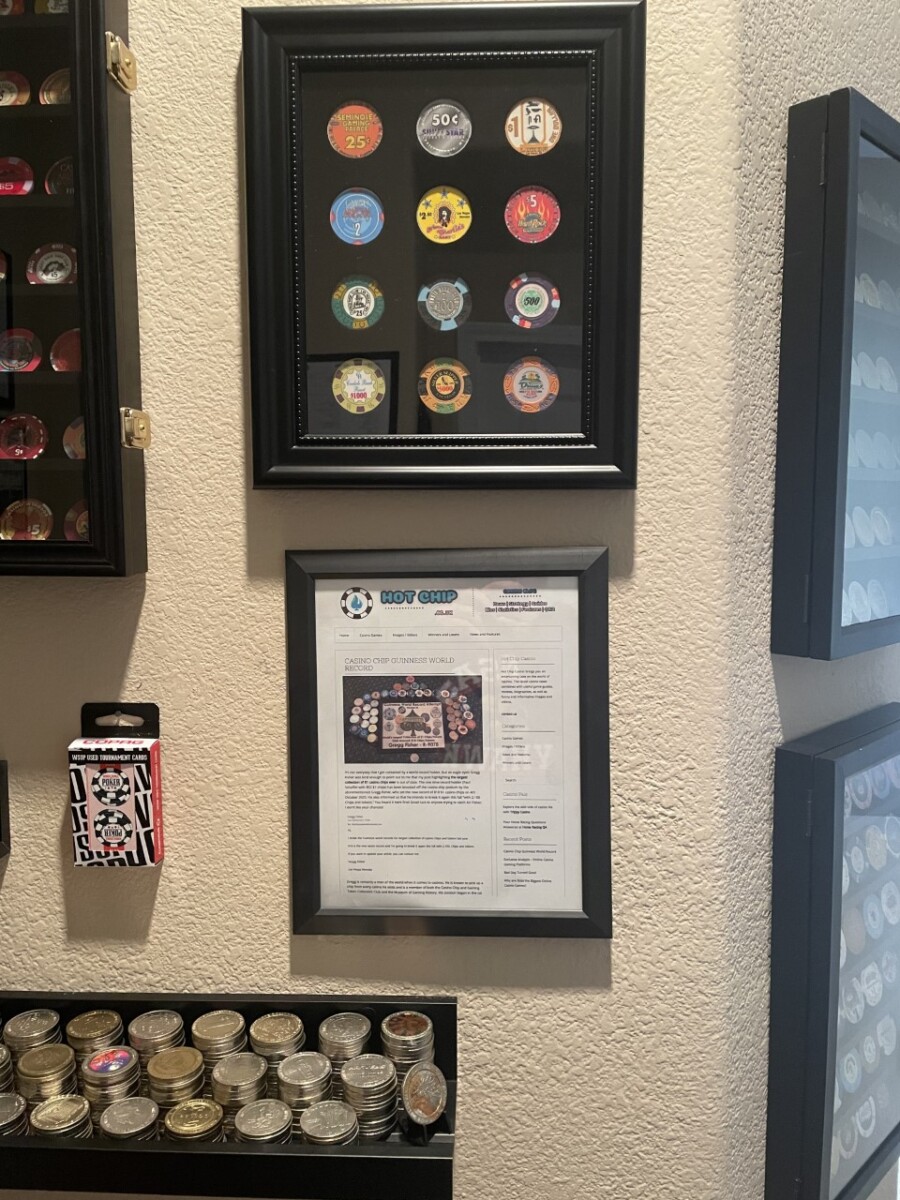
“I’ve always been drawn to casinos, from when I was a boy watching westerns on tv. They were always playing poker, roulette, drinking and fighting.
I lived in Las Vegas in the 70’s, again in the 80’s and now again from 2012. I have over 5,200 chips and tokens in my collection.
The Guinness world records is for unique chips/tokens from different casinos. I like many collectors have multiple versions of chips and tokens from the same casino.
To be clear, the Guinness world records for largest collection of $1 casino and tokens , requires only one chip or token from each casino. Guinness world records requires photos, videos, spreadsheets, experts, public viewing, witness statements and cover letter. I would like to encourage others to start their collection or continue collecting. It’s a fascinating way to learn about the gaming industry around the world.
My Guinness world records is for $1 chips/ tokens in the United States only. On my next attempt I will use $1 chips/tokens form around the world. I have chips/tokens from over 20 countries and cruise ships.”
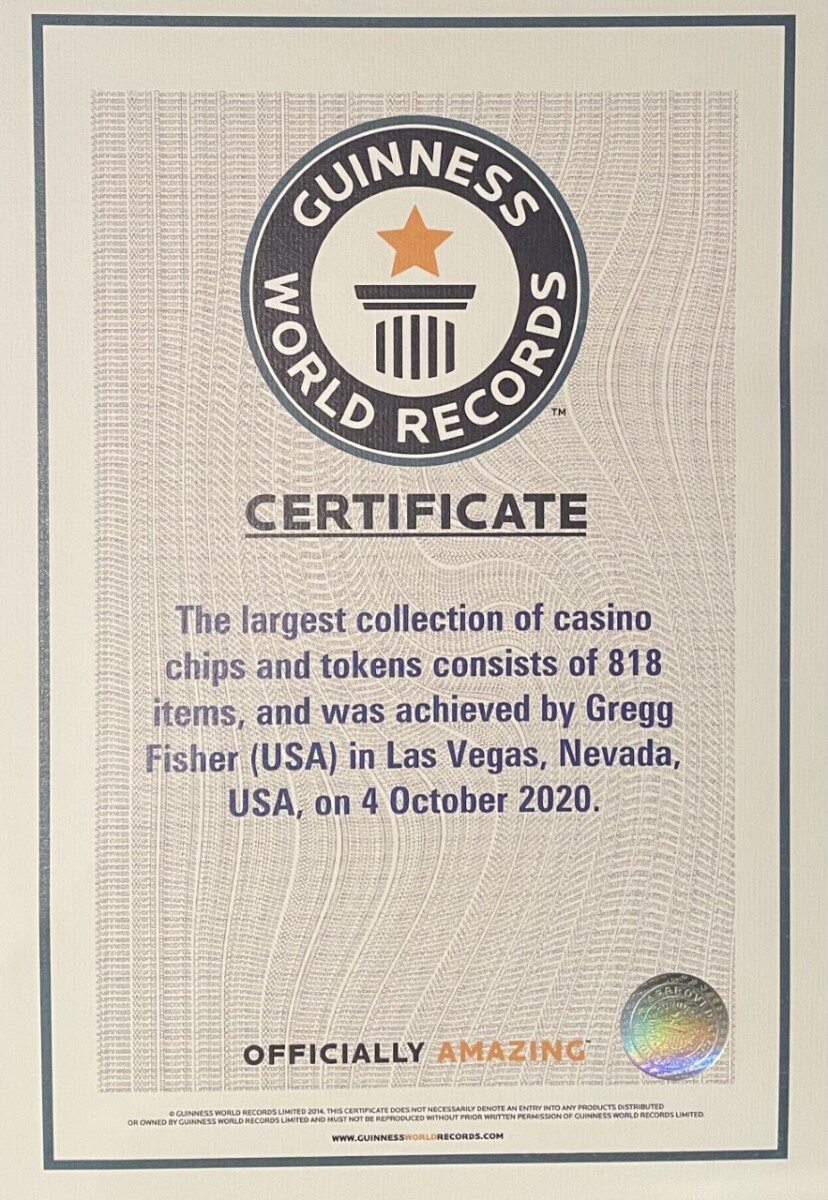

Gambling is one of Britain’s favourite pastimes, and the industry is increasing year after year. According to statistics published by the United Kingdom Gambling Commission (UKGC), the total gambling market was worth £14.3 billion between October 2018 and September 2019, with online gambling holding the largest share of the market, accounting for 38% of the industry’s revenue and reaching more than £5 million, the majority of which coming from England. Known for enforcing strict rules and high standards of transparency and gambling awareness, the Gambling Commision makes the UK online casino markets one of the most highly regulated in the world.
Statistics reported by Satista indicated that 21% of the UK adult population had engaged in some form of online gambling over the previous month. The most popular form of gambling in the United Kingdom, online casino games such as roulette and other table games amount to a large part of the Gross Gambling Yield (GGY. Between October 2018 and September 2019, the study by the UKGC shows that online slots comprised 69% of the total GGY, while roulette was the second most played game with 13% of the total revenue.
As the COVID-10 pandemic started in 2020, many countries around the world issued lockdowns and social distancing measures to prevent the spreading of the virus. With these restrictions, traditional land-based casinos were forced to shut down, which led to an increase in the number of players in online casinos. In the United Kingdom, casinos and other gambling venues were closed for the third time in December 2020, and haven’t returned to operations since.
With this rise in the number of users, online casinos also experienced a boost in the demand for live dealer games. Players tired of the same old slot machines started turning their attention to these live games, seeking an authentic casino experience with real-time results, and the same fairness and unpredictability as brick-and-mortar venues.
What are live dealer casino games?

Nowadays, every reputable online casino offers classic games live which players can enjoy in real time on multiple platforms. Unlike most online casino games that rely on random numbers generators to provide results, live games are hosted by professional croupiers who operate the game at the moment of playing. Featuring live video streaming allows players to see the actions of the dealers and the whole gameplay as if they were in a traditional brick-and-mortar casino.
One of the biggest advantages of live dealer games is that players are able to witness the whole gaming process as it happens, without the necessity of software generated results, as professional croupiers can provide a more trustworthy feel. Apart from that, players can communicate and interact with the dealers through the live chat feature present in almost every online casino, granting an authentic casino experience.
To ensure the most accurate feel to bettors playing from their homes and enduring severe lockdowns, online casinos stream these games from luxurious casinos and broadcast studios, using some of the best streaming technology available, providing high-quality video and clear audio.
Partnering with leading software suppliers like Evolution Gaming and Microgaming, online casinos are able to offer a large selection of live games with special features and bonuses, and make them available in multiple platforms, including mobile devices. Most reputable online casinos also offer features that help ensure responsible gambling.
Most popular live dealer games
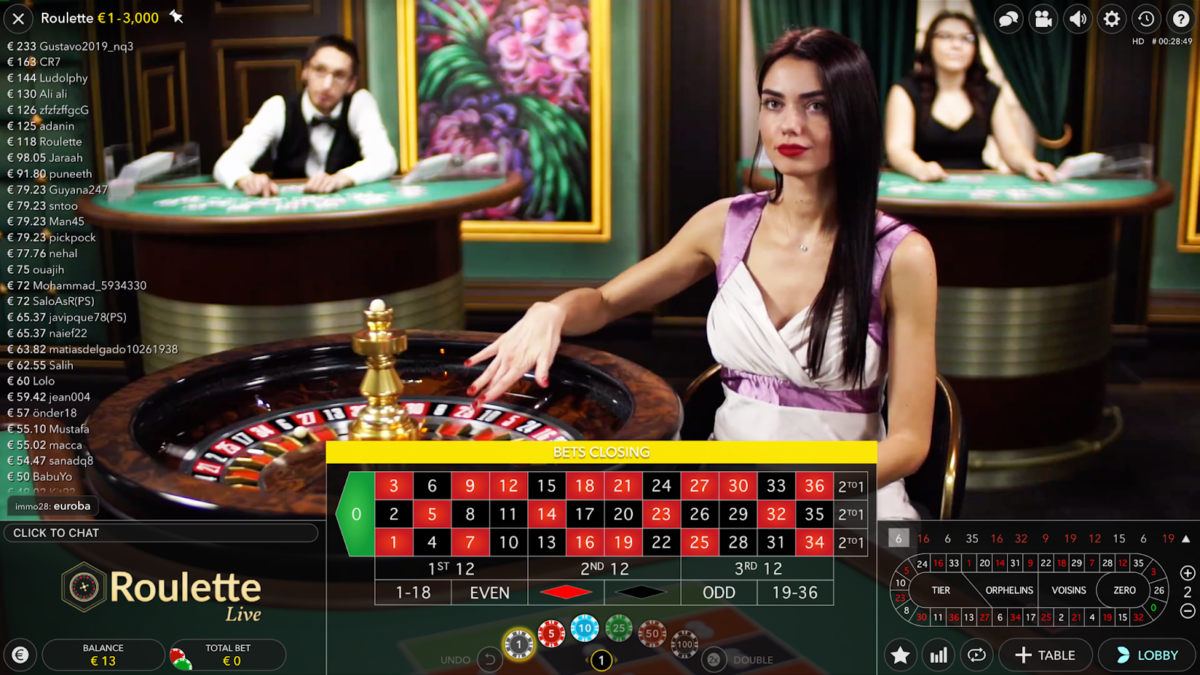
Currently, almost every online casino provides players with the opportunity to experience many casino classics with live dealers and in real time. Bettors can find a number of game variations and tables with different betting limits and ambiance.
Roulette is one of the most popular live games in online casinos, and is usually offered in its classic and French variations. The rules applied in online casinos are the same as land-based venues, with a few additional features like favourite bets and bet history.
A favourite in traditional brick-and-mortar casinos, Blackjack is also available in these websites, with several rules and limits, including unlimited and progressive blackjack. One interesting innovation in live blackjack games is the optional bet “Bet Behind”, which can be placed on another participant in the game.
Baccarat is also very favoured in live casino because, unlike blackjack, it doesn’t require any particular skills or strategy and offers lower house advantage. Most websites provide several additional side bets that can greatly increase payouts.
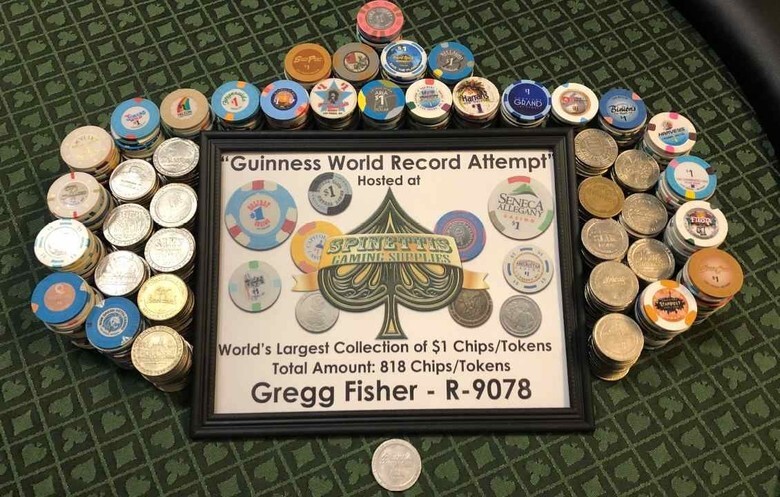
It’s not everyday that I get contacted by a world record holder, but an eagle eyed Gregg Fisher was kind enough to point out to me that my post highlighting the largest collection of $1 casino chips ever is out of date. The one time record holder (Paul Schaffer with 802 $1 chips) has been knocked off the casino chip podium by the aforementioned Gregg Fisher, who set the new record of 818 $1 casino chips on 4th October 2020. He also informed us that he intends to break it again this fall “with 2,100 Chips and tokens.” You heard it here first! Good luck to anyone trying to catch Mr Fisher; I don’t like your chances!
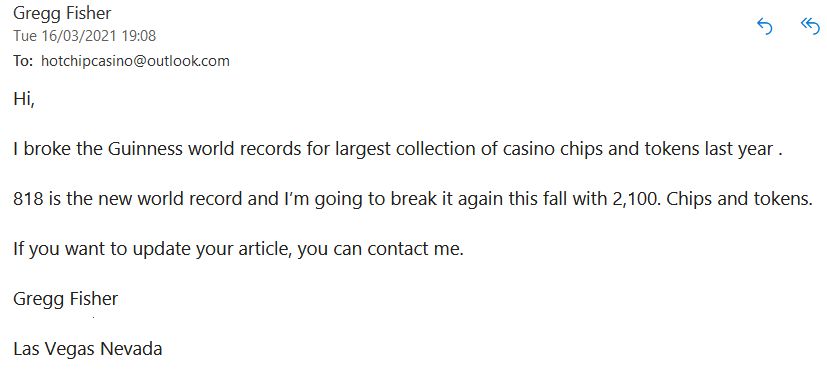
Gregg is certainly a man of the world when it comes to casinos. He is known to pick up a chip from every casino he visits and is a member of both the Casino Chip and Gaming Token Collectors Club and the Museum of Gaming History. His passion began in the rat pack days of the 1970s when he came to Vegas. On one occasion as he played poker, he even overheard Dean Martin in the background. Not many people can say that! His passion has taken him countrywide to numerous poker tournaments and he’s a man very well versed in the history of gaming stateside.
The most popular activity of online gaming is getting the recognition it deserves. This implies the fact that more and more people are expressing their interest regarding what this segment has to offer, thus explore all of the possibilities that will come their way. Understanding all of this, you will have to make sure that you focus your attention on one specific gaming genre at a time to explore it to a greater extent. Here, we are going to explore the world of online casino games, thus get behind all of the impressive elements that are incorporated within the online gaming platforms.
Having established all of this, in today’s article, we have managed to explore this exclusive analysis of the online casino gaming platforms, to help you get a bet understanding of the approach, thus explore all of the gaming benefits that will follow. This way you will also get a chance to understand the importance of online gaming platforms, as well as build a rather different and unique point of view that will help you explore the gaming world to the fullest.
With all of this in mind, let’s get right into this subject.
The Process of Finding the Best Online Gaming Platform
When it comes to dealing with online gaming opportunities, you will get a chance to access this process by finding the best-suited gaming platform. However, it is important to note that there is a vast selection of online casino platforms that are available for you to explore, and you will have to make sure that you have chosen the right one.
Even though all of this seems like it is a complex process to achieve, in reality, if you take a look at a UK online casino like this, you will get a chance to explore all of the advances that the online casino industry has to offer. If you decide to explore the platform we have mentioned above, you will get a chance to access the impressive gaming world that is filled with the latest tech advances used in a way to transform your complete gaming experience.
The Significant Terms and Conditions
Once you have completed the first segment of this article, you will get a chance to explore the following one that deals with the terms and conditions of the platform of choice. This step is of great importance as it will give you are better look at how the platform operates.
Here, you will also get a chance to find out a little bit more about the games that are incorporated within the platform, as well as the game developers that are featured on the casino gaming platform of choice. In addition to all of this, you will get a chance to establish a gaming account that will give you a chance to further access the gaming opportunities using your authentic gaming profile that will track your progress.
The Bottom Line
When it comes to dealing with online gaming platforms, make sure that you incorporate all of the things we have discussed so far, thus get a chance to establish a rather enjoyable atmosphere.
